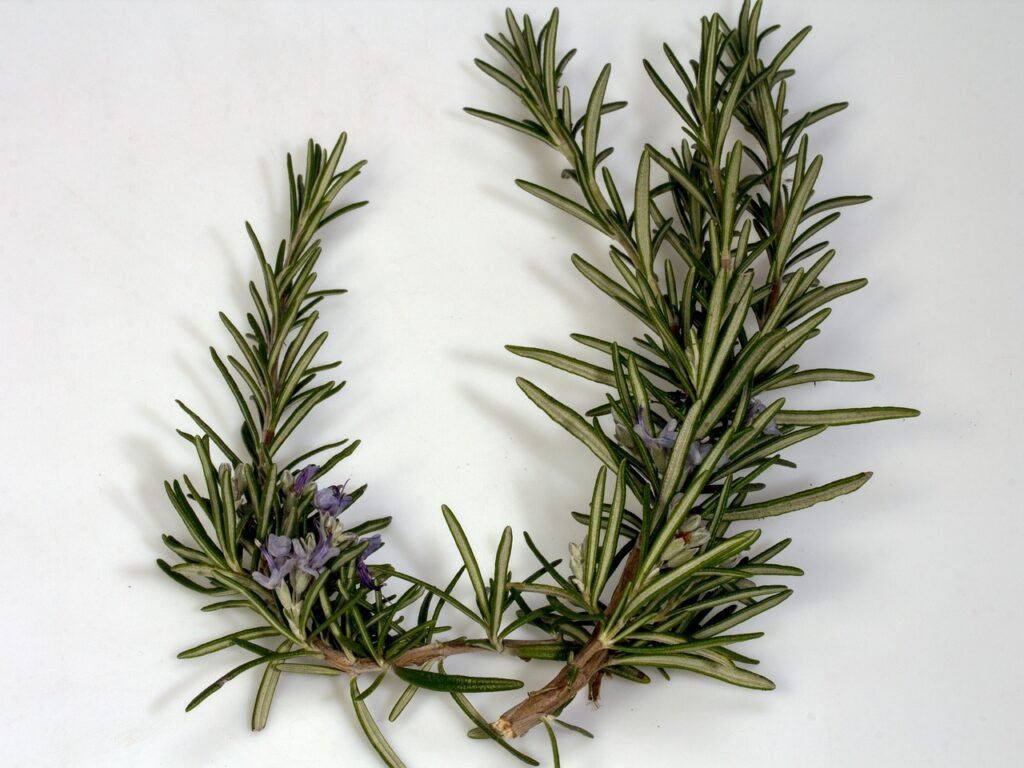
Discover the timeless secret to luscious, healthy locks with rosemary water for hair. This natural elixir has been revered for centuries for its remarkable benefits, promising to breathe new life into dull and lifeless strands. Whether you’re battling with hair loss, struggling with slow hair growth, or simply looking for a natural alternative to chemical-laden hair products, rosemary water might just be the magic potion you’ve been searching for.
Unveiling the Magic of Rosemary Water for Hair
Rosemary water for hair transcends the bounds of modern fads to stand as a storied remedy with roots deep in herbal tradition. This aromatic infusion, derived from the verdant leaves of the rosemary plant, is imbued with an array of nutrients vital for fostering a thriving hair ecosystem. Its antioxidant properties are a shield against the oxidative stress inflicted by environmental aggressors, preserving the integrity of hair follicles. Meanwhile, the anti-inflammatory compounds present in rosemary water offer solace to irritated scalps, laying the groundwork for healthy hair growth.
The allure of rosemary water extends to its ability to invigorate hair follicles, thanks to its potent phytochemicals. By awakening dormant follicles, it paves the way for enhanced hair density and mitigates the onset of premature graying, keeping the natural pigment of your hair intact for longer. Moreover, it serves as a natural enhancer, bestowing your tresses with a renewed vigor and lustrous sheen that speaks of vitality.
Beyond its immediate visual and tactile enhancements, rosemary water acts as a guardian of your hair’s health. Its application can lead to a noticeable reduction in scalp issues such as dandruff, which is often a hindrance to optimal hair growth. By fostering an environment conducive to hair development, rosemary water stands as a testament to the power of nature in nurturing beauty. Its multifaceted benefits make it a cornerstone ingredient for anyone seeking to revitalize their hair naturally, offering a holistic approach to hair care that is as nourishing as it is revitalizing.
How to Prepare and Use Rosemary Water
Crafting your own rosemary water is a simple, yet rewarding process that requires minimal ingredients. Begin by gathering either fresh or dried rosemary leaves. For every cup of distilled water, you will need roughly one tablespoon of rosemary leaves. Bring the water to a boil and add the rosemary leaves, allowing them to simmer gently for 20 to 30 minutes. This process will infuse the water with the essential oils and beneficial properties of the rosemary. After simmering, remove the pot from the heat and allow it to cool to room temperature. Once cooled, strain the liquid to remove the rosemary leaves, pouring the infused water into a clean, airtight bottle for storage.
To reap the benefits of rosemary water in your hair care regimen, consider using it as a rinse post-shampooing. After washing and conditioning, pour the rosemary water gently over your scalp and hair, massaging it in for a minute before a final rinse with cool water. This method not only stimulates the scalp but also leaves your hair with a natural, radiant shine. Another application involves filling a spray bottle with rosemary water and misting your hair and scalp daily. This daily treatment can refresh your scalp and hair, offering continuous exposure to the benefits of rosemary. Whether used as a rinse or a daily spritz, rosemary water is a versatile addition to your hair care routine, promising to nourish and invigorate your hair with every use.
The Science Behind Rosemary Water and Hair Growth
Empirical research has begun to illuminate the profound effects rosemary water may have on promoting hair growth, corroborating long-held anecdotal beliefs. Key findings have identified that compounds within rosemary, notably when distilled into water or extracted into oil, possess properties akin to those found in conventional hair growth treatments such as minoxidil. This similarity lies in their shared ability to enhance blood circulation to the scalp. Improved scalp circulation means that hair follicles receive an increased supply of oxygen and nutrients, which are crucial for the production of healthy hair.
Furthermore, the scientific community has spotlighted ursolic acid, a compound abundantly found in rosemary. Ursolic acid plays a dual role in the health of hair by not only strengthening hair roots but also by bolstering the fibers of the hair strands themselves. This multifaceted approach aids in preventing hair fall and encourages the growth of more resilient hair.
Additional research highlights the role of rosemary water in inhibiting the production of Dihydrotestosterone (DHT), a derivative of testosterone that is a known contributor to hair loss. By mitigating the effects of DHT, rosemary water helps in reducing the risk of hair thinning and loss.
This growing body of scientific evidence underpins the use of rosemary water as a potent, natural strategy for hair growth. Its efficacy, rooted in the principles of improved scalp circulation and nutrient delivery to hair follicles, presents a compelling case for its inclusion in hair care regimens for those seeking to stimulate hair growth naturally.
Integrating Rosemary Water into Your Hair Care Routine
Adopting rosemary water into your daily hair care practices is an effortless yet impactful step toward enhanced hair vitality. This natural remedy is particularly beneficial for individuals facing issues such as an itchy scalp or dandruff, thanks to its remarkable antimicrobial qualities. Beyond addressing scalp concerns, rosemary water acts as a gentle, effective agent for softening and detangling hair, presenting itself as a superior natural alternative to many commercial hair care products that may contain undesirable chemicals.
To leverage the full potential of rosemary water, consider incorporating it in various ways. For instance, you can blend it with your favorite natural oils, such as coconut or olive oil, to create a deeply nourishing conditioning treatment. This blend can be applied as a pre-shampoo treatment or as a leave-in conditioner to infuse your hair with moisture, strengthen the strands, and enhance overall texture.
Using rosemary water doesn’t require complicated routines. Simple daily practices, such as a final rinse with rosemary water after showering or a refreshing spritz throughout the day, can significantly impact your hair’s health and appearance. These methods ensure continuous exposure to the beneficial properties of rosemary, promoting a healthier scalp and more vibrant, resilient hair over time.
Remember, the key to experiencing the full advantages of rosemary water lies in consistent and thoughtful integration into your hair care regimen. Whether used alone or in combination with other natural ingredients, rosemary water offers a straightforward, effective approach to nurturing and maintaining beautiful hair.
Complementary Natural Remedies for Optimal Hair Health
To maximize the effectiveness of rosemary water for your hair, integrating other natural remedies can provide synergistic benefits for an even healthier mane. Aloe vera, revered for its soothing and hydrating qualities, pairs exceptionally well with rosemary water. Applying a mixture of the two can alleviate scalp irritation and ensure your hair remains moisturized, which is crucial for preventing breakage and promoting hair elasticity.
Another powerful ally for hair health is apple cider vinegar, known for its ability to balance scalp pH and enhance shine. A rinse made from diluted apple cider vinegar can be used once a week to remove product buildup, leaving hair feeling refreshed and looking vibrant.
Incorporating natural oils such as coconut, argan, or jojoba oil into your routine can also complement rosemary water’s benefits. These oils can deeply condition the hair, reduce frizz, and protect hair from environmental stressors. For an intensive treatment, mixing rosemary water with your oil of choice and applying it as a hair mask can deeply nourish the scalp and strands.
Diet plays a crucial role in hair health as well. Consuming foods high in antioxidants, vitamins, and omega-3 fatty acids supports hair growth from within. Foods like salmon, nuts, and leafy greens, rich in these nutrients, can fortify hair follicles for stronger, healthier hair.
By thoughtfully combining rosemary water with these natural remedies and nutritional practices, you can create a comprehensive hair care strategy that not only addresses scalp and hair issues but also promotes overall hair wellness.
Precautions and Considerations for Using Rosemary Water
While incorporating rosemary water into your hair care routine offers a range of beneficial effects, it’s crucial to acknowledge certain precautions to ensure a safe and positive experience. Firstly, conducting a patch test is a vital step before regular use. Apply a small amount of rosemary water to a discreet area of your scalp and wait for at least 24 hours to observe any adverse reactions, such as itching, redness, or irritation, which could indicate sensitivity to the herb.
Those with sensitive skin should proceed with caution, as rosemary water, while natural, can still provoke reactions in predisposed individuals. It’s always a good idea to dilute the rosemary water with more distilled water if your skin tends to react to new products easily.
Pregnant women or individuals with specific health conditions should seek advice from a healthcare professional before adding rosemary water to their regimen. Its stimulating properties, while beneficial for hair growth, might not be advisable for everyone.
Finally, it’s essential to maintain realistic expectations and practice patience. Natural remedies like rosemary water work gently and may require consistent application over a period to produce noticeable results. Frequent use, as part of a well-considered hair care routine, is crucial for those looking to achieve the full spectrum of benefits that rosemary water has to offer. Remember, the journey to healthier hair is a marathon, not a sprint, and taking these precautions can help ensure a smoother path forward.
